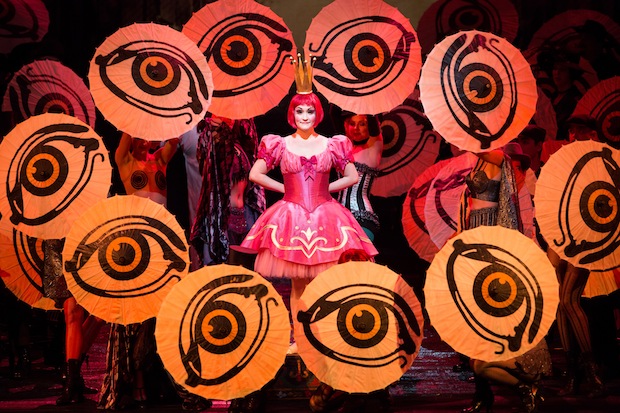Les Contes d’Hoffmann
Met Opera Live
This was another excellent performance from the Met, though that house’s addiction to enormously elaborate scenery – most of which could be sold off to Las Vegas – reaches lunatic proportions, robbing the work of its dream-like or hallucinatory quality, though that must surely have been a large part of Offenbach’s intention. The paradox of Les Contes d’Hoffmann is that the finer the performance, the more frustrating the piece itself becomes.
Perhaps it has that in common with its near-contemporary Carmen, another work that succeeds only on a superficial level. Neither, notoriously, reached a definitive form before its composer died, though Hoffmann is very much less finished than Carmen, but they have in common that no two productions that one sees of them use the same musical or verbal text. The other evident similarity that they have is that both of them are so full of good melodies and have enough strong situations as well as weird lacunae that it isn’t conceivable that either should be dropped from the repertoire. On the other hand, while Carmen has hardly any longueurs, Hoffmann has marvellous things between a series of them, indeed, in a version as full as the Met’s, it is only thanks to the extremely high level of the performance that the opera didn’t seem imminently to collapse under the weight of its own wordiness.
The central dramatic flaw is that Hoffmann is quite hard to sympathise with, a passive creature with a hopeless tendency to fall in love with a doll, a dying singer, a prostitute. Thanks to the superlative account of the role by Vittorio Grigolo, a winning personality and enchanting singer, one almost felt sorry for Hoffmann, but I’m more inclined to wish he’d pull himself together. His Muse/Nicklausse, quite the most interesting figure in the drama, was also wonderfully taken, by Kate Lindsey. Their relationship remains one that invites but unrewardingly repels investigation.
The four loves were proof that having them all sung by the same soprano is fatal: Hibla Gerzmava was Stella and Antonia, no more physically convincing as a tubercular case than sopranos of old, but a glorious singer. Olympia was sung with dutiful emptiness by Erin Morley, and Christine Rice, in far too small a role as Giulietta, made the Venetian scene intriguingly unpleasant – but how brief the Barcarolle is! Thomas Hampson sung the four villains indistinguishably, as I feared. Yves Abel, a brilliant conductor who seemed to have disappeared for years, conducted with energy and delicacy.







Comments